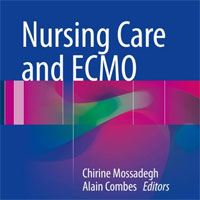Tag: ARDS

Expiratory Flow Limitation During Mechanical Ventilation
Expiratory flow limitation (EFL) is present when the flow cannot rise despite an increase in the expiratory driving pressure. The mechanisms of EFL are debated but are believed to be related to the collapsibility of small... read more

Cardiac Markers Implication in Risk-stratification and Management for COVID-19 Patients
COVID-19 patients with pre-existing coronary artery disease represented a higher abnormal percentage of cardiac markers, accompanied by high mortality and ICU admission rate. BNP together with hs-TNI, α- HBDH, CK-MB and... read more

Massive Alveolar Hemorrhage Presenting During the COVID-19 Pandemic
The coronavirus disease (COVID-19) pandemic has challenged healthcare systems and has resulted in complex diagnostic processes for patients with non-COVID-19 pathology. Here, we demonstrate a case of massive alveolar... read more

90 Day Outcomes of COVID-19 Patients in European ICUs
This communication delineates outcomes in COVID-19 patients in the context of ARDS severity, ventilatory management, and variables associated with mortality on a 90-day follow-up for subgroups of patients after ICU admission.... read more

COVID-19: Critical Care and Airway Management Issues
Among patients hospitalized with coronavirus disease 2019 (COVID-19), up to one-quarter require intensive care unit (ICU) admission. Profound hypoxemic respiratory failure from acute respiratory distress syndrome (ARDS)... read more

Prone Position in Intubated, Mechanically Ventilated COVID-19 Patients
During the COVID-19 pandemic, prone position has been widely adopted to treat mechanically ventilated patients with respiratory failure. The majority of patients improved their oxygenation during prone position, most likely... read more

Effects of Ventilatory Rescue Therapies on the Cerebral Oxygenation of COVID-19 Patients
A new study by Masimo published in Critical Care evaluated the impact of a variety of rescue therapies on the systemic and cerebral oxygenation of mechanically ventilated COVID-19 patients suffering from acute respiratory... read more

NeuroRx Announced Completion of Data Analysis for COVID-19 Treatment Respiratory Failure
NeuroRx, Inc. announced completion of top line data analysis of the 60-day results in its phase 2b/3 clinical trial, conducted under FDA Fast Track Designation, of ZYESAMI™ (aviptadil acetate) for the treatment of critically-ill... read more

Cerecor Significantly Reduced Respiratory Failure and Mortality in Phase 2 Clinical Trial in Patients Hospitalized with COVID-19 ARDS
Final analysis inclusive of the 60-day safety update in the randomized placebo-controlled study demonstrated CERC-002 was statistically significant in reducing respiratory failure and mortality at Day 28 in patients hospitalized... read more

Efficacy of Serum Angiotensin II Levels in Prognosis of Patients with COVID-19
The serum angiotensin II levels decrease significantly in patients with coronavirus disease 2019, and this decrease is correlated with lung damage. There was no statistical significance between the serum angiotensin II... read more

No Significant Difference between Tocilizumab and Placebo in Severe COVID-19 Pneumonia Patients
In this randomized trial involving hospitalized patients with severe COVID-19 pneumonia, the use of tocilizumab did not result in significantly better clinical status or lower mortality than placebo at 28 days. In this... read more

Temporal Changes in the Epidemiology, Management, and Outcome from ARDS
The frequency of and outcome from ARDS remained relatively stable between 2002 and 2012. Plateau pressure > 29 cmH2O and driving pressure > 14 cmH2O on the first day of mechanical ventilation but not tidal volume > 8... read more

Physiological dead space and alveolar ventilation in ventilated infants
Prematurely born infants with pulmonary disease have a higher dead space than term controls, which may influence the optimum level during volume-targeted ventilation. A prospective study of mechanically ventilated infants... read more

Clinical Examination Skills in the Adult Critically Ill Patient
This well-illustrated book provides detailed guidance on all aspects of physical examination in patients requiring emergency or intensive care. After an introductory section covering basic principles and the recognition of... read more








